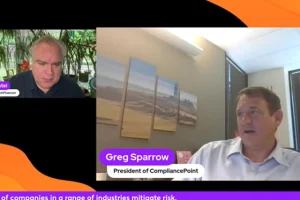FCC Closes Compliance Gaps with Lead Generators, Caller ID Authentication and Texting Rules
On March 16, 2023, The Federal Communications Commission (FCC) held its March 2023 Open Commissions Meeting and adopted its latest rules to combat illegal robocalls/texts.
Enhancing Protections Against Illegal Robocalls
The Commission adopted a Sixth Report and Order and Further Notice of Proposed Rulemaking, which would include:
- ALL telecom providers, regardless of their STIR/SHAKEN implementation status, will now be required to take “reasonable steps” to mitigate illegal robocall traffic and submit a certification and mitigation plan to the FCC’s Robocall Mitigation Database.
- FCC requires providers recently covered by the general mitigation standard to meet that standard within 60 days following Federal Register publication of the Report and Order.
The FCC made clear that failure to abide by its mandatory blocking rules could result in substantial fines and for removal of providers that submit deficient certifications to the Robocall Mitigation Database.
For more information on this, you can visit: https://www.fcc.gov/call-authentication.
In the Further Notice of Proposed Rulemaking the Commission seeks comments on how they can continue to take steps in the future to enhance its robocall protections for consumers.
Protecting Consumers with Robotext Blocking
In this order, the Commission adopted the Report and Order in the Matter of Targeting and Eliminating Unlawful Text Messages which includes:
- Blocking of texts purporting to be from numbers on a reasonable Do-Not-Originate (“DNO”) list and requires providers and other entities to maintain a point of contact for texters to report erroneously blocked texts;
- Blocking of text messages that appear to come from phone numbers that are unlikely to transmit text messages (which includes invalid, unallocated, or unused numbers); and
- Each wireless provider to establish a point of contact in which companies can dispute about blocked text messages that should not have been blocked.
The Commission seeks comments in The Further Notice of Proposed Rulemaking on the following:
- Requiring terminating wireless providers to block illegal texts upon Commission notification;
- Text message authentication and spoofing;
- Clarifying DNC Protections for text messages; and
- Closing the lead generator loophole.
Specifically, the proposal to close the lead generator loophole will be the most concerning for companies that utilize lead generators, as the commission wants to amend the statutory language § 64.1200 by revising section (f)(9) to read as follows:
“Prior express written consent for a call or text may be to a single entity, or to multiple entities logically and topically associated. If the prior express written consent is to multiple entities, the entire list of entities to which the consumer is giving consent must be clearly and conspicuously displayed to the consumer at the time consent is requested. To be clearly and conspicuously displayed, the list must, at a minimum, be displayed on the same web page where the consumer gives consent.”
This means that lead generators would no longer be able to use hyperlinks and the number of entities that would be able to gain consent from a single webform may become more limited.
Interested parties may file comments on the Further Notice of Proposed Rulemaking on or before 30 days after publication in the Federal Register and reply comments on or before 60 days after publication in the Federal Register here.
Reach out to us at connect@compliancepoint.com if you have any questions about lead generators, do not call rules, or other telemarketing laws.
Finding a credible expert with the appropriate background, expertise, and credentials can be difficult. CompliancePoint is here to help.





